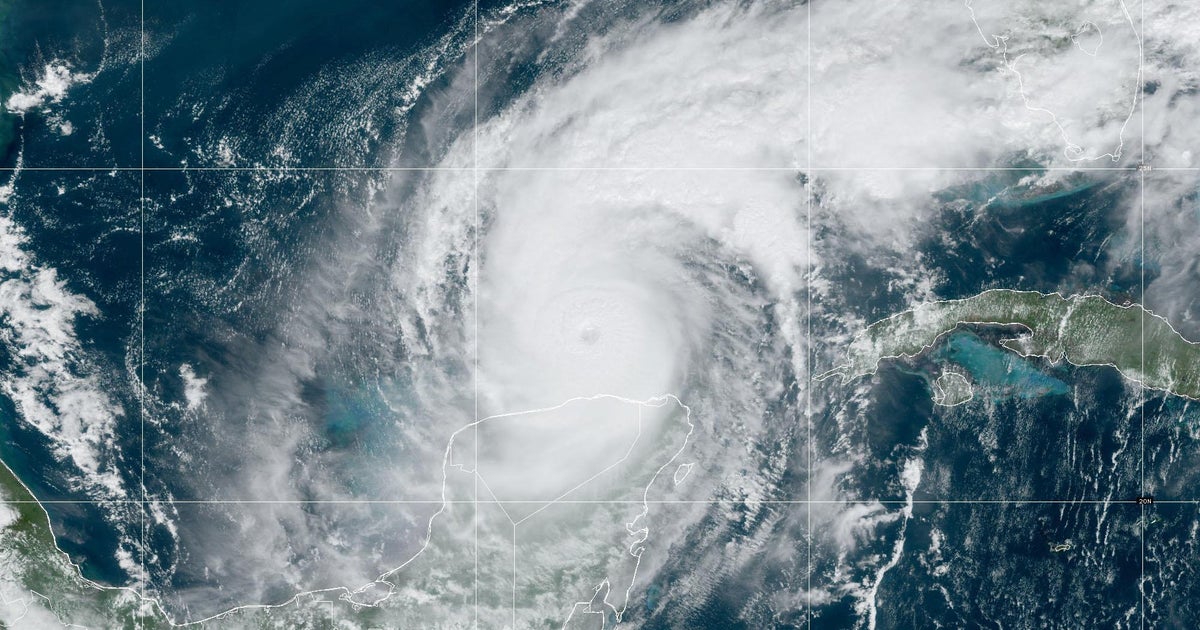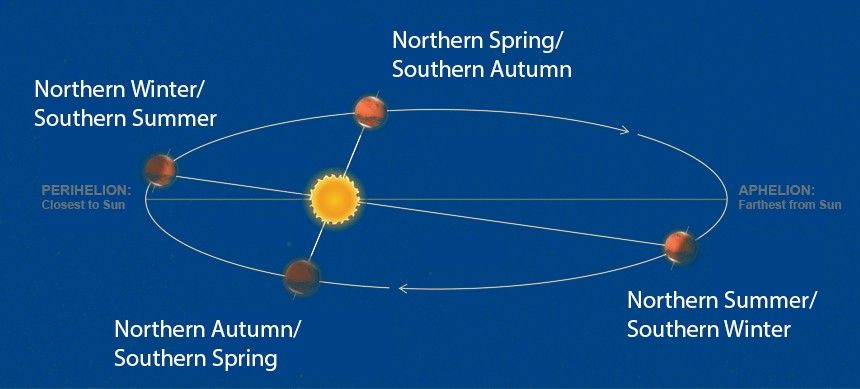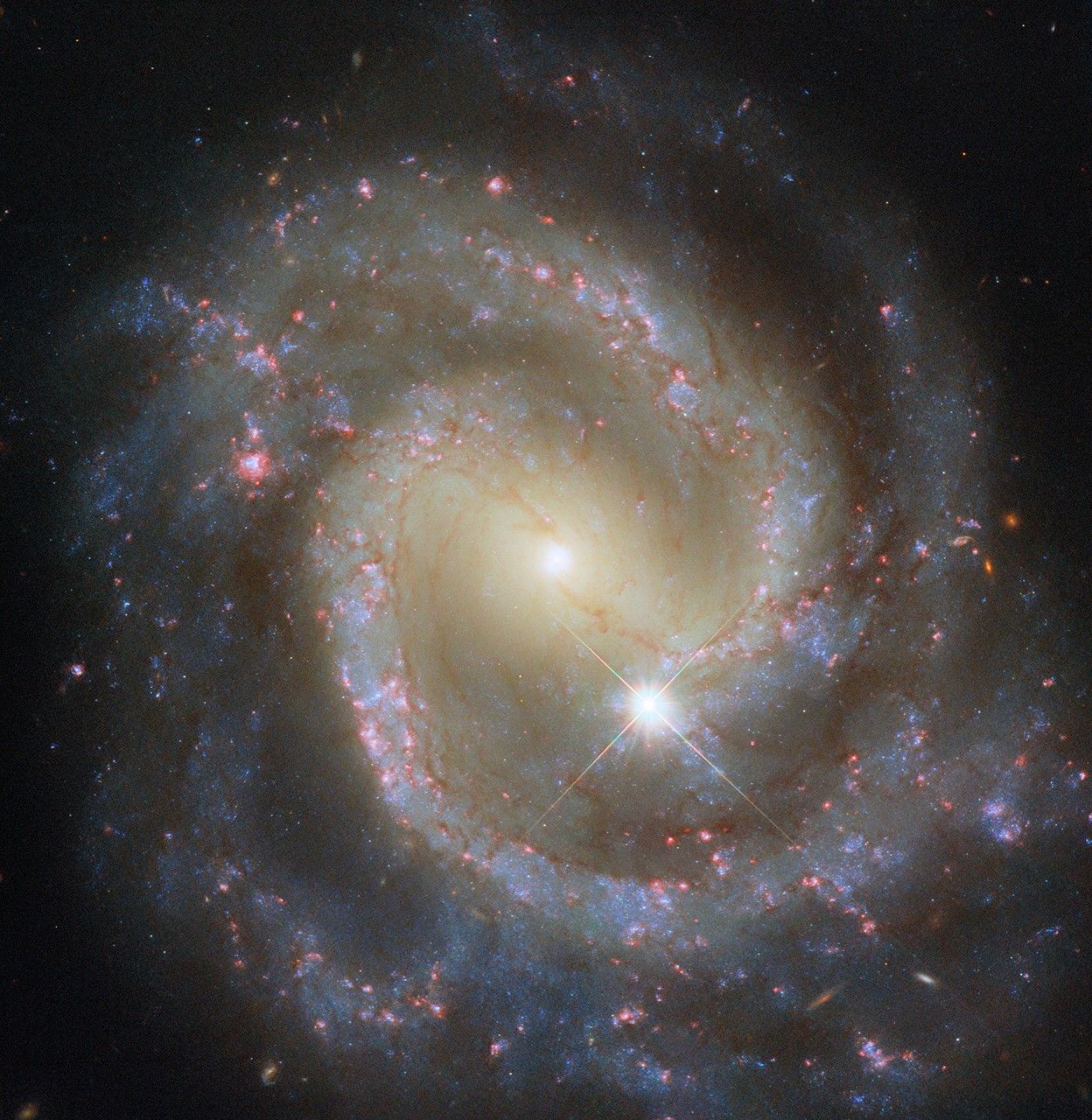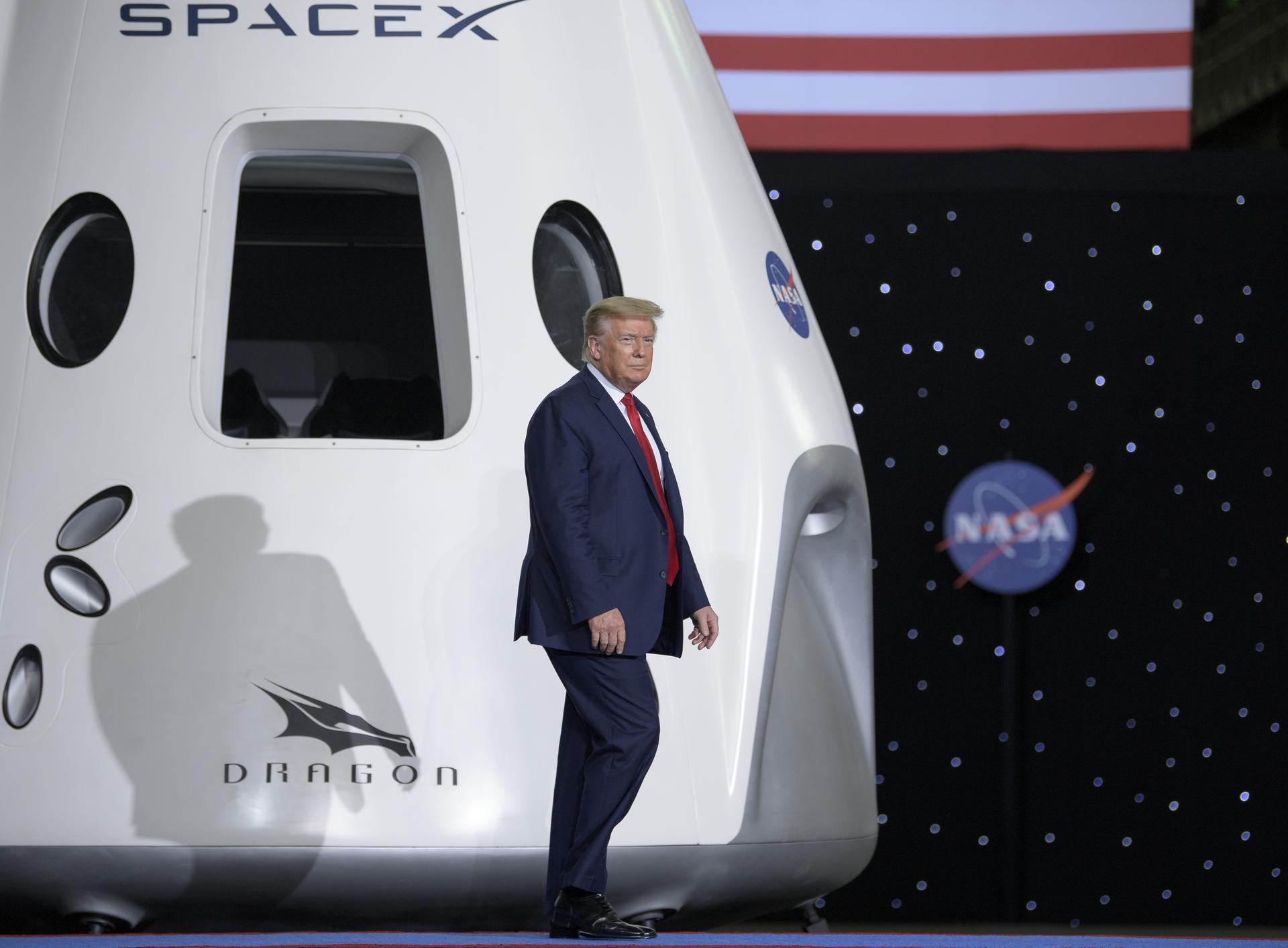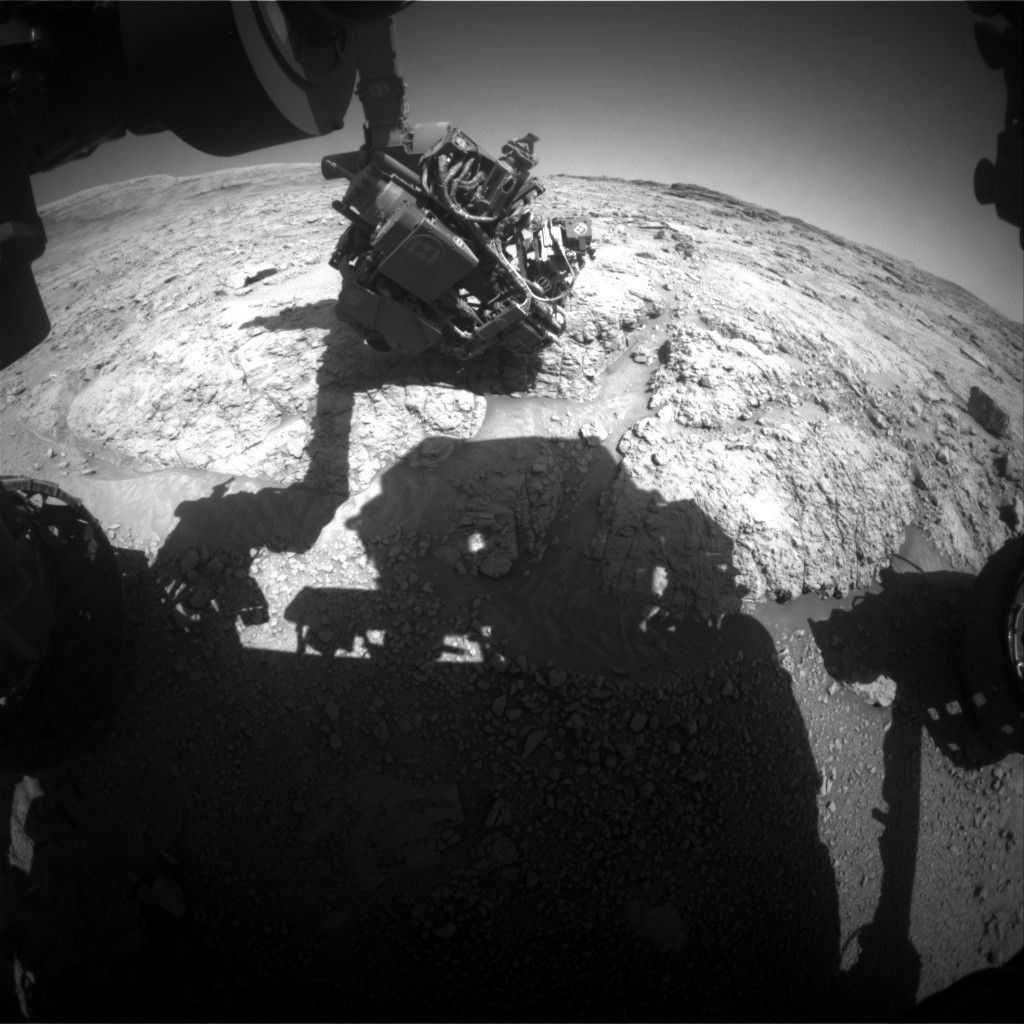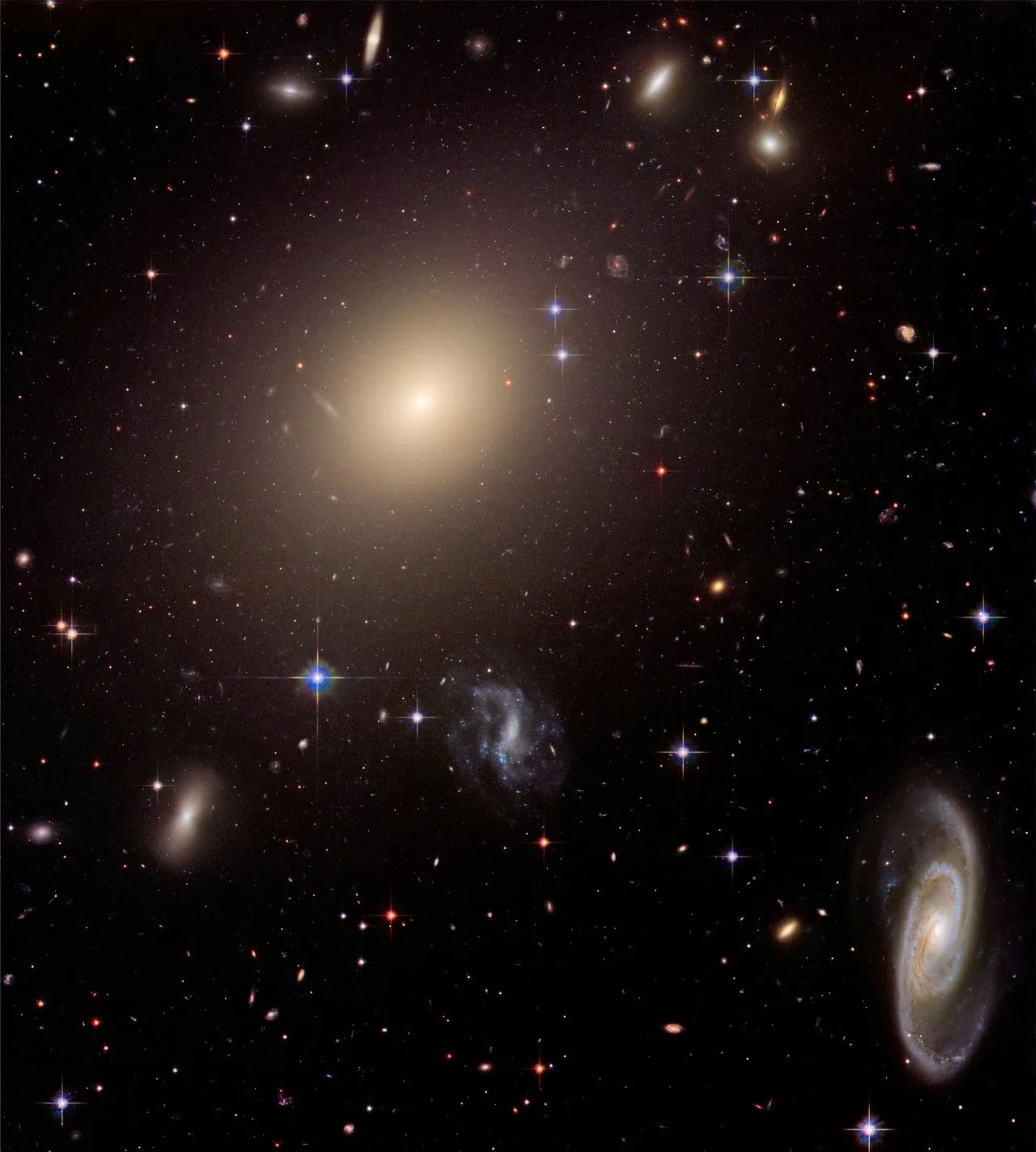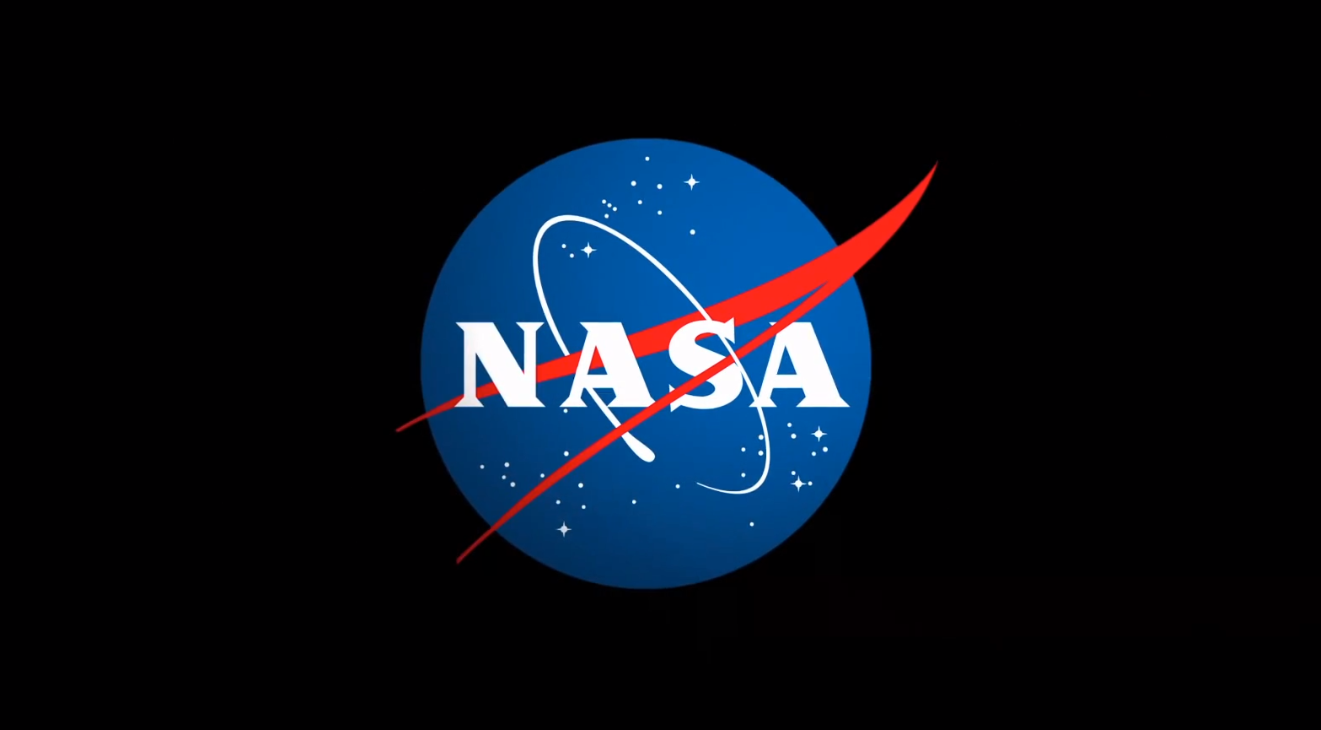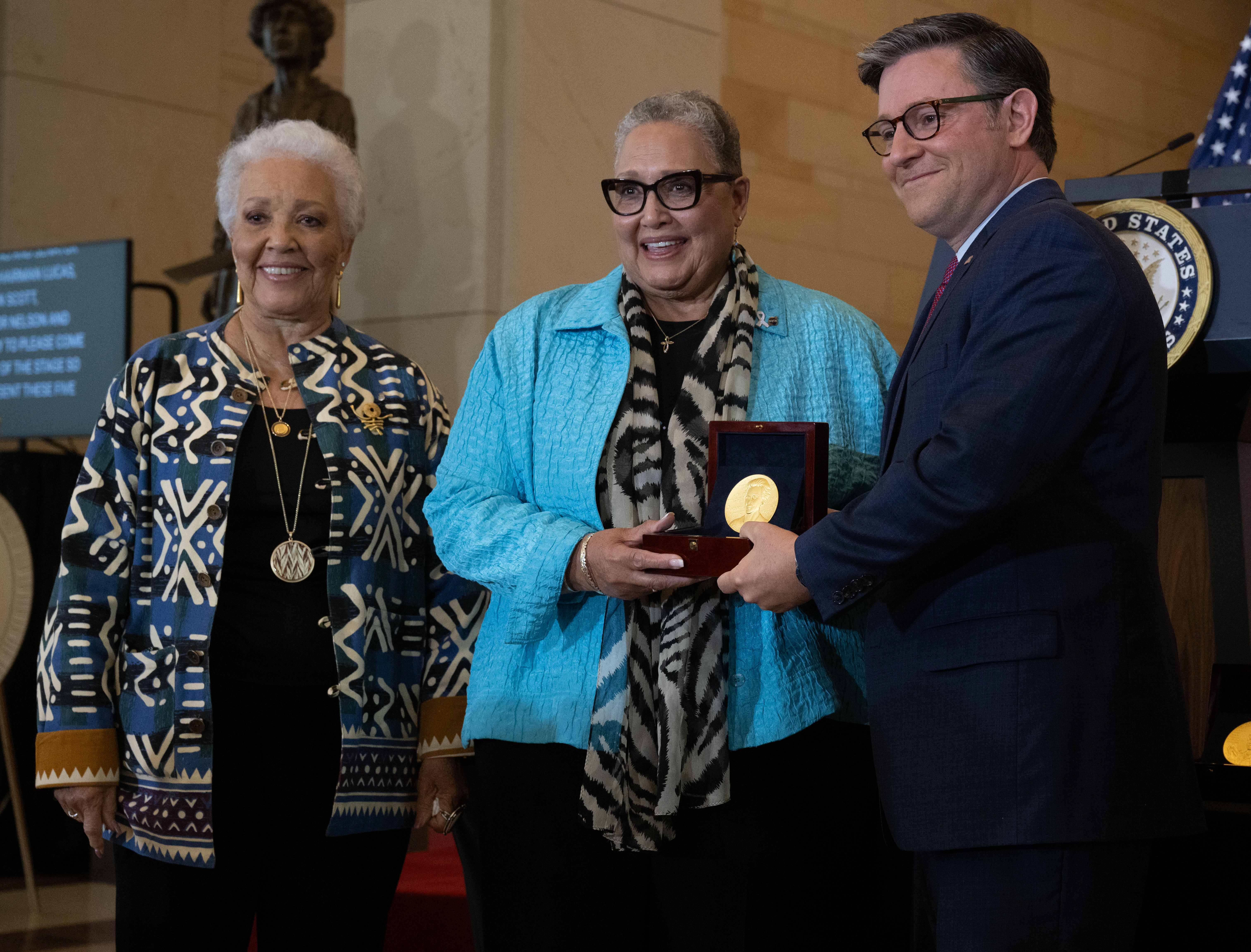Found: First Actively Forming Galaxy as Lightweight as Young Milky Way
For the first time, NASA’s James Webb Space Telescope has detected and “weighed” a galaxy that not only existed around 600 million years after the big bang, but is also similar to what our Milky Way galaxy’s mass might have been at the same stage of development. Other galaxies Webb has detected at this time […]
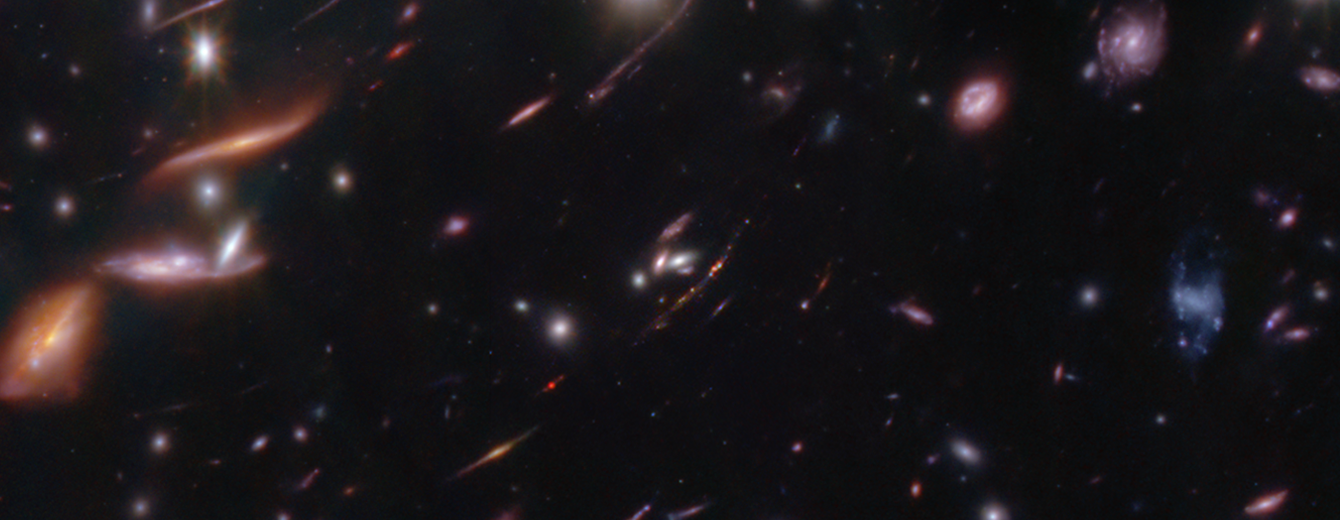
Found: First Actively Forming Galaxy as Lightweight as Young Milky Way

NASA, ESA, CSA, STScI, Chris Willott (National Research Council Canada), Lamiya Mowla (Wellesley College), Kartheik Iyer (Columbia University)
For the first time, NASA’s James Webb Space Telescope has detected and “weighed” a galaxy that not only existed around 600 million years after the big bang, but is also similar to what our Milky Way galaxy’s mass might have been at the same stage of development. Other galaxies Webb has detected at this time period are significantly more massive. Nicknamed the Firefly Sparkle, this galaxy is gleaming with star clusters — 10 in all — each of which researchers examined in great detail.
Image A: Firefly Sparkle Galaxy and Companions in Galaxy Cluster MACS J1423 (NIRCam Image)
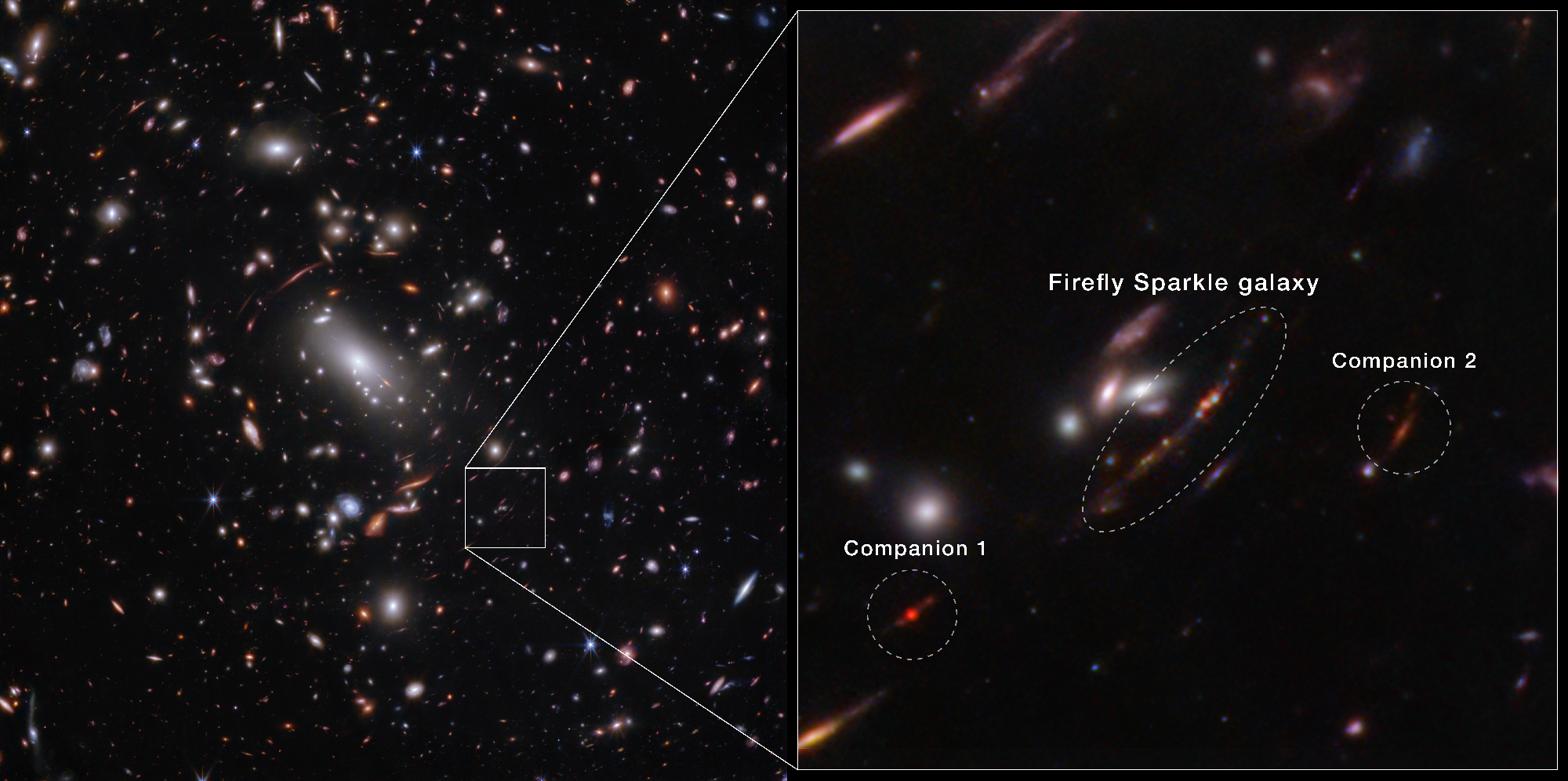
“I didn’t think it would be possible to resolve a galaxy that existed so early in the universe into so many distinct components, let alone find that its mass is similar to our own galaxy’s when it was in the process of forming,” said Lamiya Mowla, co-lead author of the paper and an assistant professor at Wellesley College in Massachusetts. “There is so much going on inside this tiny galaxy, including so many different phases of star formation.”
Webb was able to image the galaxy in crisp detail for two reasons. One is a benefit of the cosmos: A massive foreground galaxy cluster radically enhanced the distant galaxy’s appearance through a natural effect known as gravitational lensing. And when combined with the telescope’s specialization in high-resolution infrared light, Webb delivered unprecedented new data about the galaxy’s contents.
Image B: Galaxy Cluster MACS J1423 (NIRCam Image)
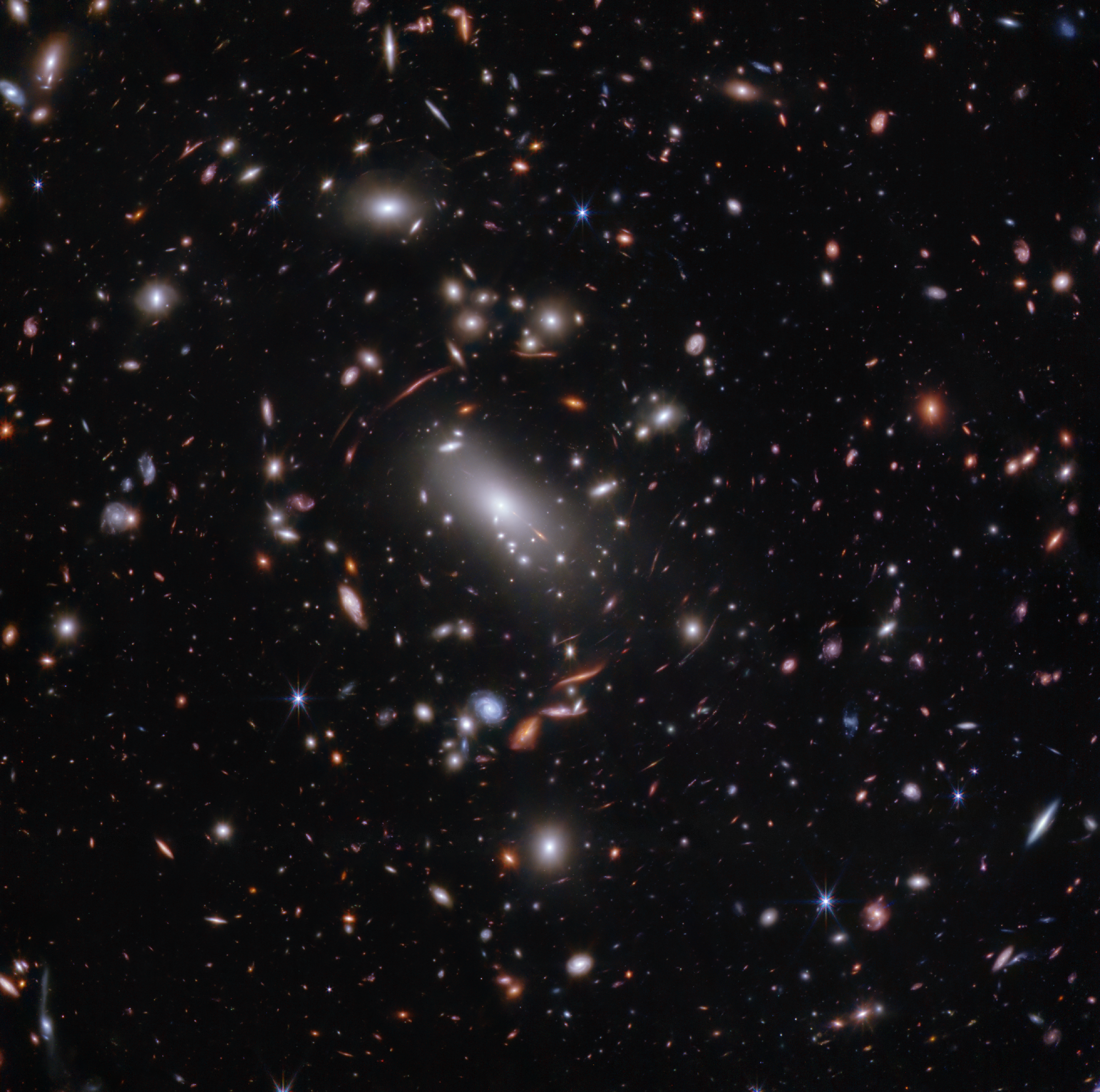
“Without the benefit of this gravitational lens, we would not be able to resolve this galaxy,” said Kartheik Iyer, co-lead author and NASA Hubble Fellow at Columbia University in New York. “We knew to expect it based on current physics, but it’s surprising that we actually saw it.”
Mowla, who spotted the galaxy in Webb’s image, was drawn to its gleaming star clusters, because objects that sparkle typically indicate they are extremely clumpy and complicated. Since the galaxy looks like a “sparkle” or swarm of lightning bugs on a warm summer night, they named it the Firefly Sparkle galaxy.
Reconstructing the Galaxy’s Appearance
The research team modeled what the galaxy might have looked like if it weren’t stretched and discovered that it resembled an elongated raindrop. Suspended within it are two star clusters toward the top and eight toward the bottom. “Our reconstruction shows that clumps of actively forming stars are surrounded by diffuse light from other unresolved stars,” said Iyer. “This galaxy is literally in the process of assembling.”
Webb’s data shows the Firefly Sparkle galaxy is on the smaller side, falling into the category of a low-mass galaxy. Billions of years will pass before it builds its full heft and a distinct shape. “Most of the other galaxies Webb has shown us aren’t magnified or stretched, and we are not able to see their ‘building blocks’ separately. With Firefly Sparkle, we are witnessing a galaxy being assembled brick by brick,” Mowla said.
Stretched Out and Shining, Ready for Close Analysis
Since the galaxy is warped into a long arc, the researchers easily picked out 10 distinct star clusters, which are emitting the bulk of the galaxy’s light. They are represented here in shades of pink, purple, and blue. Those colors in Webb’s images and its supporting spectra confirmed that star formation didn’t happen all at once in this galaxy, but was staggered in time.
“This galaxy has a diverse population of star clusters, and it is remarkable that we can see them separately at such an early age of the universe,” said Chris Willott from the National Research Council of Canada’s Herzberg Astronomy and Astrophysics Research Centre, a co-author and the observation program’s principal investigator. “Each clump of stars is undergoing a different phase of formation or evolution.”
The galaxy’s projected shape shows that its stars haven’t settled into a central bulge or a thin, flattened disk, another piece of evidence that the galaxy is still forming.
Image C: Illustration of the Firefly Sparkle Galaxy in the Early Universe (Artist’s Concept)

Video: “Firefly Sparkle” Reveals Early Galaxy
‘Glowing’ Companions
Researchers can’t predict how this disorganized galaxy will build up and take shape over billions of years, but there are two galaxies that the team confirmed are “hanging out” within a tight perimeter and may influence how it builds mass over billions of years.
Firefly Sparkle is only 6,500 light-years away from its first companion, and its second companion is separated by 42,000 light-years. For context, the fully formed Milky Way is about 100,000 light-years across — all three would fit inside it. Not only are its companions very close, the researchers also think that they are orbiting one another.
Each time one galaxy passes another, gas condenses and cools, allowing new stars to form in clumps, adding to the galaxies’ masses. “It has long been predicted that galaxies in the early universe form through successive interactions and mergers with other tinier galaxies,” said Yoshihisa Asada, a co-author and doctoral student at Kyoto University in Japan. “We might be witnessing this process in action.”
The team’s research relied on data from Webb’s CAnadian NIRISS Unbiased Cluster Survey (CANUCS), which includes near-infrared images from NIRCam (Near-Infrared Camera) and spectra from the microshutter array aboard NIRSpec (Near-Infrared Spectrograph). The CANUCS data intentionally covered a field that NASA’s Hubble Space Telescope imaged as part of its Cluster Lensing And Supernova survey with Hubble (CLASH) program.
This work has been published on December 11, 2024 in the journal Nature.
The James Webb Space Telescope is the world’s premier space science observatory. Webb is solving mysteries in our solar system, looking beyond to distant worlds around other stars, and probing the mysterious structures and origins of our universe and our place in it. Webb is an international program led by NASA with its partners, ESA (European Space Agency) and CSA (Canadian Space Agency).
Downloads
Right click any image to save it or open a larger version in a new tab/window via the browser’s popup menu.
View/Download all image products at all resolutions for this article from the Space Telescope Science Institute.
View/Download the research results from the journal Nature.
Media Contacts
Laura Betz – laura.e.betz@nasa.gov
NASA’s Goddard Space Flight Center, Greenbelt, Md.
Claire Blome – cblome@stsci.edu, Christine Pulliam – cpulliam@stsci.edu
Space Telescope Science Institute, Baltimore, Md.
Related Information
Video: How are Distant Galaxies Magnified Through Gravitational Lensing?
Article: Webb Science: Galaxies Through Time
Article: Spectroscopy 101
Interactive: Learn how the Webb microshutter array (MSA) works
Related For Kids
En Español
Share
Related Terms
What's Your Reaction?









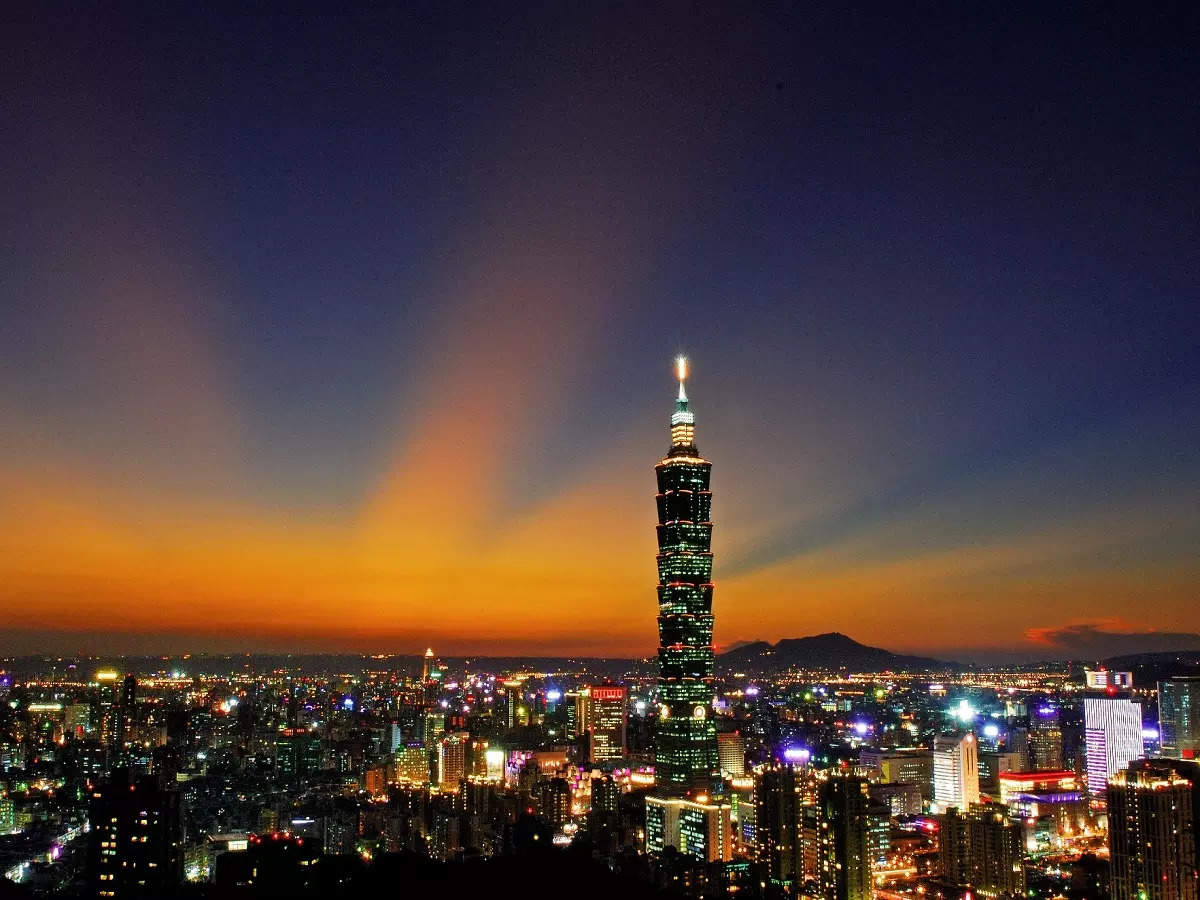



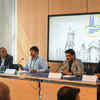


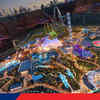


.jpg?#)







